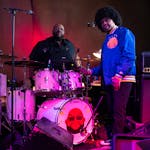People speak of "the Finnish miracle," referring to the surprising number of important musicians produced by the little country (population 5.5 million): conductors, singers, virtuoso instrumentalists.
Celebrations of Finland's centennial — 100 years since the nation achieved independence — are worldwide this year, but they carry special weight in Minnesota, where so many Finns migrated in the early 20th century.
In the years since 2003, when Osmo Vänskä became music director of the Minnesota Orchestra, the Finland-Minnesota connection has gained strength and given audiences here a reawakened appreciation of Finnish orchestral music.
Another faithful exponent of the Finnish miracle has been Philip Brunelle, whose Plymouth Music Series — now VocalEssence — presented in 1999 a weeklong festival of the music of Einojuhani Rautavaara, who was then Finland's major living composer. It was the first festival devoted to this composer ever staged outside Finland.
These two forces came together in a concert Sunday afternoon at the American Swedish Institute in south Minneapolis. Titled "Finlandia Forever," the program, conducted by Brunelle, served to kick off VocalEssence's 49th season and featured Vänskä as clarinet soloist.
Brunelle's program focused on two segments of Finnish music that remain lively: choral music and folk fiddling. Between the choral numbers, Sara Pajunen, an engaging and skillful fiddler who lives in Minnesota and tours extensively, played several of her own folk-flavored pieces, including a poignant Finnish waltz.
The program drew on the work of about a dozen mostly contemporary Finnish composers, such as Kaija Saariaho and Rautavaara. Saariaho's "Horloge, Tais-Toi" was a comic number that pitted sopranos against altos to see which could beat the clock.
For this performance, featuring Vänskä and tenor Robert Graham, composer Olli Kortekangas arranged a new version of three of his songs based on melodies compiled in the 16th century. Joined by the men of Brunelle's Ensemble Singers, Vänskä also played the sweet and gentle "Evening Prayer" by Mikko Heiniö.
Perhaps the most striking piece was "Maritime Calamity Song" by Jaakko Mäntyjärvi. The text is based on a 1994 news broadcast reporting the sinking of the huge car ferry Estonia, which took 852 lives. Margaret Sabin and Robert Smith were the excellent soloists.
Brunelle's expert Ensemble Singers mastered a wide range of challenging material. And it sounded as if they were well coached in the Finnish language, although the many Finns in the audience were probably better judges of that.
There was a nod to tradition — the program opened and closed with Sibelius' "Finlandia" — but the preponderance of new and recent compositions suggested that music remains a vital force in Finland. The Finnish miracle continues.
Michael Anthony is a Twin Cities classical music critic.






